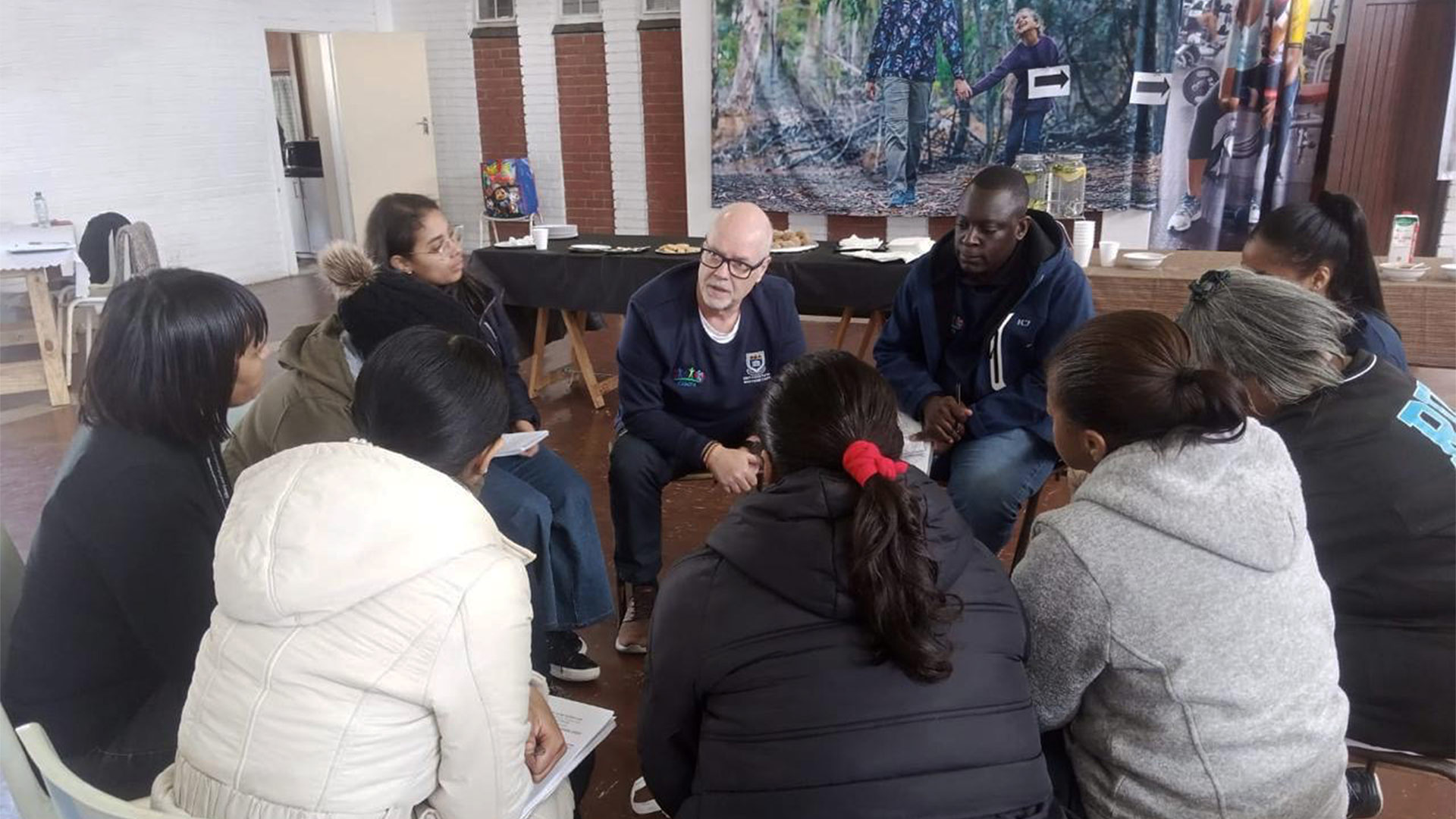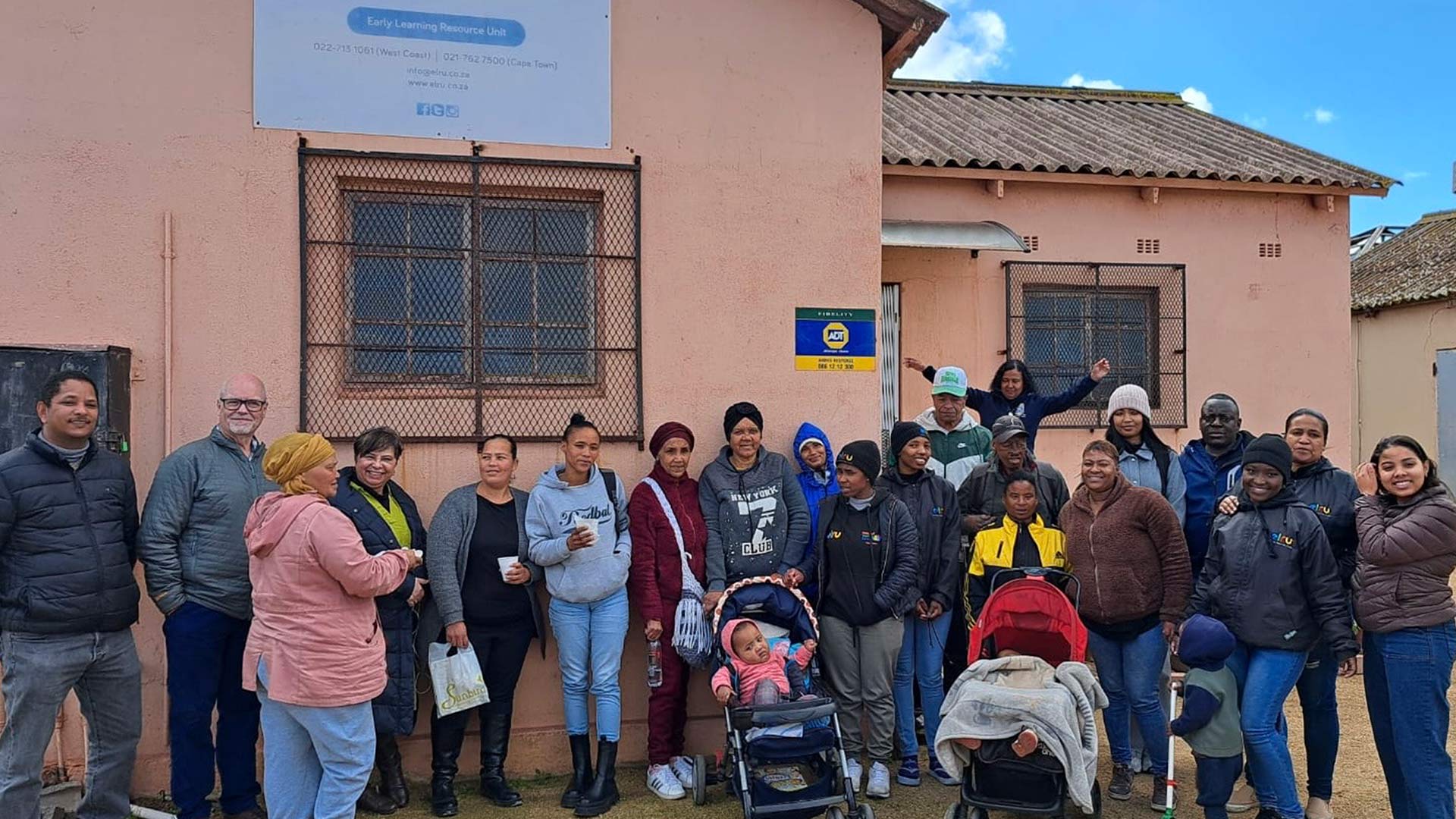Leverhulme Trust fellowship funds research project with families in South Africa

(Dr Jim Reid leading a group discussion with parents in South Africa as part of the Fellowship)
University of Huddersfield’s Dr Jim Reid has begun a Leverhulme Trust International Research Fellowship, working on a research project in South Africa to develop the concept of family capabilities.
The research, in conjunction with the human capabilities work of Professor Nicolette Roman at the University of the Western Cape (UWC), involves families in disadvantaged communities – including urban and rural communities.
Dr Reid’s work is supported through the Leverhulme Trust’s grant and Professor Roman is supported by a South African National Research Foundation grant – with both partnering on the overall research.
Dr Reid, a Reader in Education at the University’s School of Business, Education and Law, will be spending a number of months in South Africa, working with families in the Western Cape as part of the fieldwork which seeks to apply human capabilities theory to family dynamics.
The project aims to first understand and define family capabilities, then look at possible interventions to help families. Current research involves working alongside NGOs and local government in two specific areas to work with both adults and young people within families.
Together they aim to learn how they might work differently with families in South Africa and how such insights could be transferred to the UK.
Dr Reid, who is Director of the University’s Huddersfield Centre for Research in Education and Society (HudCRES), added that the partnership had been three years in the making and that time had been needed to build trust with families in the communities involved.

He commented: “The aim of the Fellowship is to develop through a South African lens the concept of family capabilities. It’s to learn from South Africa, who have been advanced in their thinking around the significance of family and family capabilities, about how we might differently understand, work with and intervene with families – and to transfer that knowledge back to the UK.
“When people talk about family, they talk about family as a noun. One of the things we have done is take the concept that families should be seen as a verb – what families do. So, what we are trying to understand is what families do to achieve wellbeing.”
Professor Roman, who is the director of the Centre for Interdisciplinary Studies of Children, Families and Society at UWC, commented: “The theory says there are ten human capabilities, and if you have these ten you potentially have a good life. You potentially can live in a system with people, interact with other species, with your environment, you have an education, health – all as an individual.
“My position is, from day one, we do not come into the world as an individual – we come into the world in a family, regardless of shape or size, whether it’s a single parent or extended family, there is always somebody there to care. So collectively, if we draw on strengths together that can make a world of difference.”
The international fellowship, which runs until May 2025, has been funded by the Leverhulme Trust, an independent charity that seeks to fund research and scholarships with the potential to generate new ideas and research breakthroughs that benefit society.